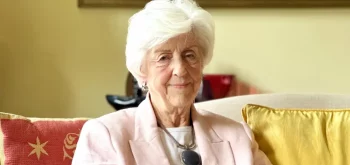Last week, Cardiff University lecturer Dr Holly Greenwood gave a keynote speech on innocence projects in the Nexus Conference on Wrongful Convictions. As one of the longest established UK innocence projects, it prompted us to reflect on the past and what the future might hold.
UK innocence projects typically involve university students and academics investigating wrongful convictions. They are part of the wider so-called innocence movement in the UK.
The first project opened its doors in 2004 in conjunction with the establishment of the Innocence Network UK. Established by Dr Michael Naughton at Bristol, the network assisted in the opening of 36 innocence projects and distributed over 100 cases among them for investigation.
In 2014, the network was folded by Dr Naughton due to resource constraints, amongst other reasons. The collapse of the network was no surprise; innocence projects were already leaving after tensions in the way it was being run. Nonetheless, the collapse of this central entity was a real negative moment: ‘a symbolic loss of what could have been: a shared movement working towards the same goals’, said Dr Greenwood.
The collapse hit some innocence projects to the point of closing down as they could no longer operate without the network’s assistance. Many factors further contributed to projects closing their doors. Many did not find running a project within a university to be feasible: academics had to use their spare time to run the extra-curricular project, and the length of casework did not fit neatly within academic year timelines. Most of the projects have been discontinued, leaving around 12 surviving.
The surviving projects still face numerous challenges. Since the inception of the first project, only two cases worked on by an innocence project led to overturned convictions. Both cases were investigated by the Cardiff Law School Innocence Project. The projects continue to display low levels of success measured by overturning convictions. A critical obstacle facing projects is the Criminal Cases Review Commission’s (CCRC) test for referring cases to the court of appeal. The miscarriages of justice watchdog is confined by the restrictive rules of the court, and may only refer a case if there is a ‘real possibility’ that the conviction will be quashed by the court. This is a restrictive test that limits what the CCRC can do, forcing it to think as the court does. The CCRC’s referral rate averages at three per cent, dropping to under one per cent in 2016/2017 (for more information on recent developments relating to the test, you can view a story here).
A further challenge is innocence projects being a ‘last resort’ to their clients who would have exhausted their options before having their cases considered. Many have already gone to the court of appeal without success. This leaves projects with the difficult task of finding fresh evidence or constructing new legal arguments. Projects are also restricted in their use of evidence, as clients have no general right to post-conviction disclosure of evidence. This makes it increasingly difficult for projects to obtain the necessary evidence to investigate or analyse a conviction. A new challenge faced in recent years is the influx of a new type of cases: historic sexual abuse. These cases present their own challenges and difficulties that projects were not previously accustomed to.
Some have criticised innocence projects, questioning how useful they truly are. However, innocence projects provide valuable services to their clients. They provide assistance, lend a listening ear to their concerns and troubles, create the potential for research and contribution to reform, and provide immense educational value and career opportunities to students. ‘In a time of criminal justice crisis, perhaps they are more necessary than ever’, Dr Greenwood said.







